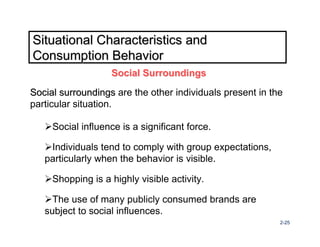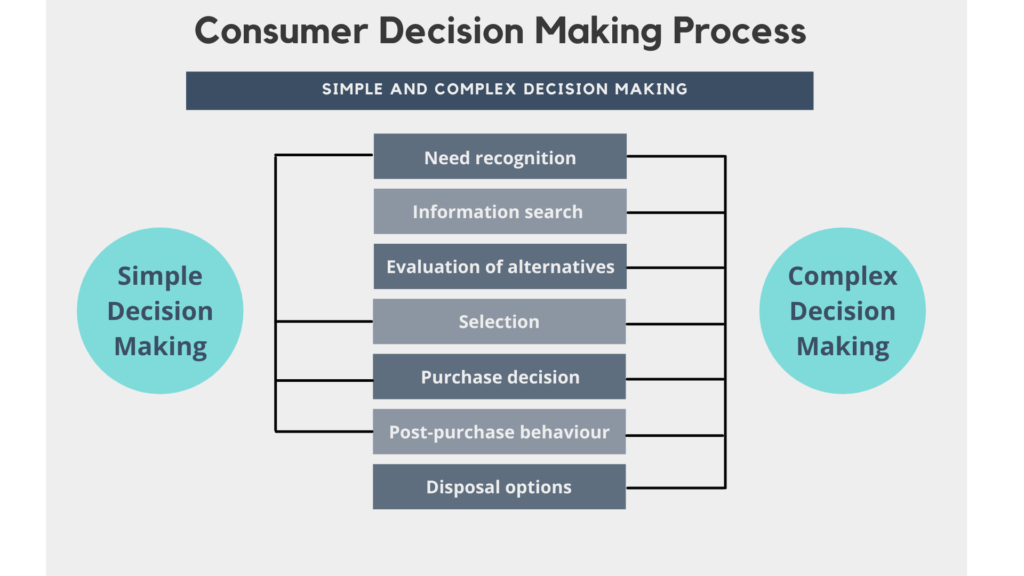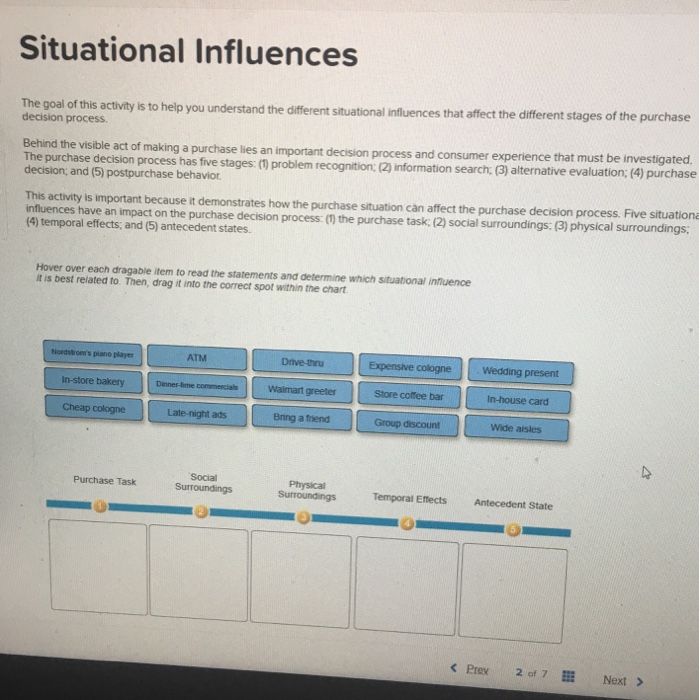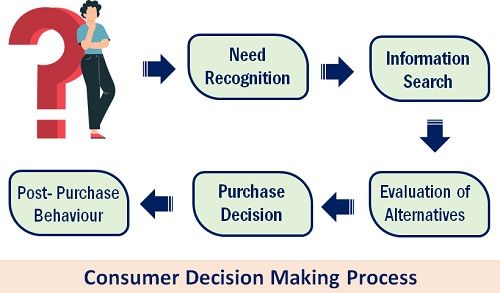Consumer decision making is the process by which individuals identify, evaluate, and choose among alternative products or services to satisfy their needs or wants. While there are many factors that can influence this process, situational influences play a significant role in shaping consumer behavior.
Situational influences refer to the specific context in which a consumer is making a decision. These can include the physical environment, the social environment, the temporal environment, and the cultural environment. Each of these can have a significant impact on the consumer's decision making process and the ultimate choice they make.
One key situational influence is the physical environment in which the decision is being made. This can include the location, layout, and design of the store or marketplace where the consumer is shopping. For example, a cluttered and chaotic store may discourage some consumers from making a purchase, while a well-organized and visually appealing store may encourage them to spend more time shopping and potentially make a purchase.
The social environment can also influence consumer decision making. This can include the presence of other people, such as friends or family members, who may influence the consumer's choice through their opinions or recommendations. Consumers may also be influenced by the perceived social norms or expectations of their peer group or community.
The temporal environment, or the timing of the decision, can also play a role in consumer decision making. Consumers may be more or less likely to make a purchase based on the time of day, the day of the week, or the season. For example, a consumer may be more likely to purchase a beach vacation package in the summer than in the winter.
Finally, cultural influences can shape consumer decision making by influencing an individual's values, beliefs, and customs. These cultural influences can come from an individual's family, community, or society at large, and can shape their preferences and decision making processes.
In conclusion, situational influences play a significant role in consumer decision making. Understanding these influences can be crucial for marketers and businesses as they seek to effectively target and appeal to their target audience. By considering the physical, social, temporal, and cultural contexts in which a consumer is making a decision, businesses can tailor their marketing efforts and create more effective and appealing products and services.









